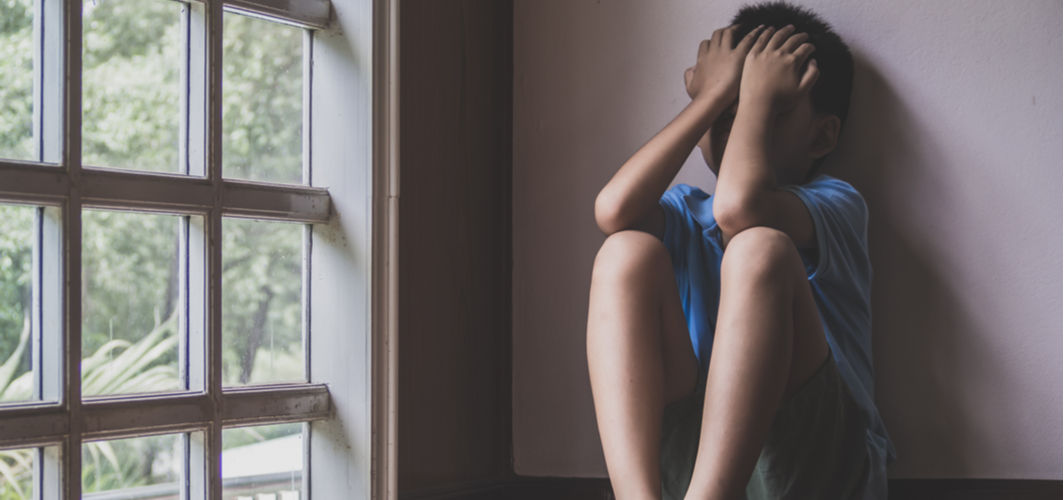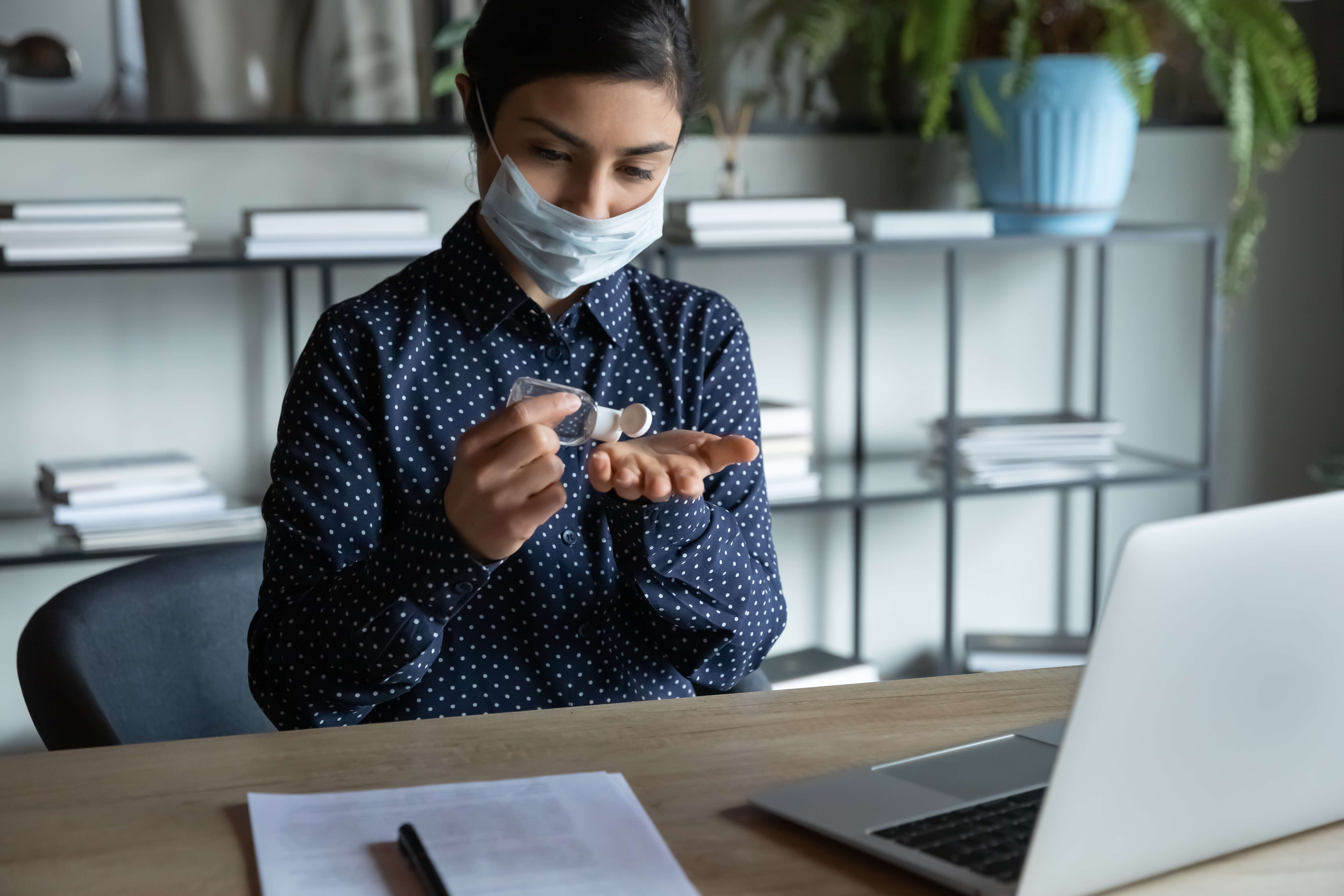Coronavirus Updates
Dealing with COVID-19 Triggered Psychological Issues in Children
7 min read
By Apollo 24/7, Published on - 17 June 2021, Updated on - 18 October 2022
Share this article
0
26 likes

Over the course of the COVID-19 pandemic and through multiple waves of infections, we have learnt that the virus not only causes several types of physical illnesses but can also affect our mental wellbeing. Various emotions like fear, frustration, boredom, anxiety, and depression are experienced by many, during the pandemic. The reasons could be varied and range from job loss and monetary difficulties, to lack of social life and disruption of daily routines.
While this has severely affected the mental state of adults, children have not been spared either. Not being able to meet their friends or attend schools have negatively impacted their mental growth and wellbeing. Often, the psychological distress experienced by children goes unnoticed as they express it differently. It is important to recognize and understand what children are going through, as they may themselves be unable to comprehend or articulate it completely.
What signs do parents need to look out for?
Every child expresses their anxiety or sadness in subtly different ways. While some children become hyperactive, others may go silent. Signs that may indicate mental health issues in children generally include:
- Inability to fall asleep or sleeping more than usual.
- Frequent nightmares interrupting sleep in the middle of the night.
- Change in appetite and eating habits.
- Change in appearance, for instance, not bathing or changing clothes for days.
- Frequent complaints of stomachache and headache.
- Digestive issues and motions problems.
- Displaying aggression and agitation, for instance, frequent conflicts with the family or making irrational demands.
- Being sad or low often without specific reasons.
- Developing new fears such as fear of being left alone.
- Loss of interest in engaging in activities they previously enjoyed such as calling or texting friends, playing video games or cooking.
- Difficulty in concentrating, thinking or memorising anything.
- Secluding oneself from parents or loved ones and spending time alone.
- Any new visible self-inflicted injuries, for instance, covering their arms and legs or unexplained cuts or bandages.
- Talking or reading about death or suicide, on the internet.
COVID-19 pandemic and mental health of children
The COVID-19 pandemic has brought uncertainty, isolation, and anxiety that has affected adults and children alike. Various studies conducted in different parts of the world have shown the adverse effects of the pandemic on the mental health of children. Some of these studies include:
- In November 2020, researchers at the Aarhus University and the Centre for Child and Adolescent Psychiatry, Denmark, conducted a study to analyse the onset or worsening of obsessive-compulsive disorder (OCD) in children and young adults between the ages of 7 and 21 years, during the COVID-19 pandemic. OCD is a psychiatric disorder characterized by unwanted thoughts or urges to indulge in repetitive behaviours. The research published in BMC Psychiatry revealed that due to fear, stress, and anxiety, there was an increased incidence of OCD symptoms in children. Excessive handwashing and disinfecting were particularly observed in children with no previous diagnosis of OCD. Furthermore, children previously diagnosed with OCD showed signs of increased anxiety and depression.
- A study published in the Journal of Affective Disorders in October 2020 provided a questionnaire (asking about depression and anxiety) to more than 3500 children and adolescents aged 7 to18 years during the COVID-19 pandemic. The results of the study showed that 22.3% of the participants had symptoms of clinical depression. There was a significant increase in anxiety, especially amongst those whose family members or friends contracted COVID-19 infection.
- In a review study (including 63 studies and more than 51000 participants) published in the Journal of the American Academy of Child and Adolescent Psychiatry in June 2020, scientists examined the impact of isolation and loneliness on the mental health of children and adolescents. The results showed that social isolation and loneliness increased the risk of depression and anxiety in children.
Taking care of children’s mental health during the pandemic
Parents or guardians need to be patient with children and understand their unspoken emotions. Measures that may help parents take care of their children’s mental well-being during the pandemic include:
- Encouraging children to speak their mind out and give them opportunities to talk about their insecurities and concerns.
- Comforting them by engaging in creative activities such as telling stories, playing family games, or doing household chores together.
- Praising them frequently for showing courage, compassion or helpfulness.
- Trying to follow regular daily routines, such as eating, studying and sleeping. Allow children and teenagers to make their study schedule.
- Reassuring children that they are safe, as doctors and scientists are working to stop the transmission of the disease. Also, provide them with accurate information about the current situation without making the conversation laced with fear.
- Not watching excessive news about the devastation caused by the COVID-19 pandemic, in the presence of children.
- Being willing to talk and listen to children’s problems in a calm manner. Mentally distressed teenagers often stay silent and keep secrets from their parents.
- Allowing adolescents to check in with friends and loved ones through phone calls, texts or video calls, as it helps in keeping their anxiety at bay.
- Engaging children with regular physical activity such as dancing, skipping a rope or yoga as it helps in reducing the signs of depression and anxiety.
- Allowing children to set new goals for themselves and research new things every day. Be it learning a new word or a new recipe, let their curiosity grow.
- Taking the help of professional counsellors to calm them. Children may especially get anxious if someone is sick in the family or have been taken to the hospital.
Self-harm among teenagers during the COVID-19 pandemic
Unfortunately, cases of self-harm and suicide among teenagers have been widely and universally reported during this pandemic. Though the reason for this is not clear, a few factors that may result in such behaviour include:
- Prolonged social isolation has made children, especially teens, overly sensitive to minor domestic issues.
- Vast amounts of time spent with digital devices due to the lockdown has resulted in possible internet addiction and low interest in physical activities.
- Cyberbullying on social networking platforms has also resulted in anxiety and low self-esteem among teenagers.
- Teens who see their stressed parents struggle with relationships, jobs or food security during the pandemic, often absorb the same feeling and exhibit similar behaviour.
- The authoritative nature of family members or an environment of fear or paranoia can affect the mental health of children.
Measures that may help parents deal with distressed teenagers during the pandemic include:
- Spending more time with the child and instilling trust that encourages them to share their deepest fears and insecurities. Listen to their issues without judging them.
- Trying to be more receptive and collaborative with children, rather than using an authoritative approach.
- Staying positive in the presence of your children. Convey consistent messages that a brighter future lies ahead and this phase would end soon.
- Handling situations maturely with a positive frame of mind and asking for their suggestions. This would make the child secure and confident.
- Educating them on how they can stay safe online and deal with cyberbullying. Help them lodge an online complaint if required.
- Learning and practising mindfulness with the child, as it would help the family cope with stress and anxiety together.
- Deciding a downtime for the whole family where one could connect, relax, enjoy a nap, play an indoor game or simply watch a movie together.
- Encouraging children to face difficulties head-on and with support from the family. This would help them become more resilient.
Sometimes, the distressed child may exhibit signs of self-harm such as the presence of self-inflicting injuries. In such cases, one can keep away all the unsafe items such as ammunition, sharp appliances and medications in a locked cabinet. Do not hesitate to talk to a paediatrician or mental health expert if you feel the child is emotionally withdrawn or depressed.
Takeaway
All around the world, the COVID-19 pandemic has affected the mental health of children and adolescents indiscriminately, resulting in the onset of several health problems such as anxiety and depression. More research is needed to assess the short and long-term effects of COVID-19 on children’s overall mental health. Meanwhile, parents and guardians must be encouraged to seek an evaluation for their children if they witness any signs of mental distress. Early intervention may help avert extreme consequences in children during these hard times.
Seek the help of a mental health expert if your child is undergoing emotional distress.
Coronavirus Updates
Leave Comment
Recommended for you

Coronavirus Updates
How Long Does Coronavirus Survive on Surfaces?
The Coronavirus can survive on clothes and paper for up to 24 hours while on glass it can live up to 4 days. Read on to know more on the survival time of the virus on different surfaces.

Coronavirus Updates
What Safety Precautions Should Employees Returning to Work after the Lockdown Take?
Avoid going to the office if you feel unwell and seek medical attention immediately. If you are healthy and must go to office, follow precautions to protect yourself at the workplace.

Coronavirus Updates
How Do We Prevent the Community Spreading of Coronavirus?
Follow social distancing norms, practice hand hygiene, wear masks, and follow the precautions mentioned in this article to prevent community spread of the Coronavirus.
Subscribe
Sign up for our free Health Library Daily Newsletter
Get doctor-approved health tips, news, and more.
Visual Stories

COVID-19: The situation on ground [6th July 2021]
Tap to continue exploring
Recommended for you

Coronavirus Updates
How Long Does Coronavirus Survive on Surfaces?
The Coronavirus can survive on clothes and paper for up to 24 hours while on glass it can live up to 4 days. Read on to know more on the survival time of the virus on different surfaces.

Coronavirus Updates
What Safety Precautions Should Employees Returning to Work after the Lockdown Take?
Avoid going to the office if you feel unwell and seek medical attention immediately. If you are healthy and must go to office, follow precautions to protect yourself at the workplace.

Coronavirus Updates
How Do We Prevent the Community Spreading of Coronavirus?
Follow social distancing norms, practice hand hygiene, wear masks, and follow the precautions mentioned in this article to prevent community spread of the Coronavirus.